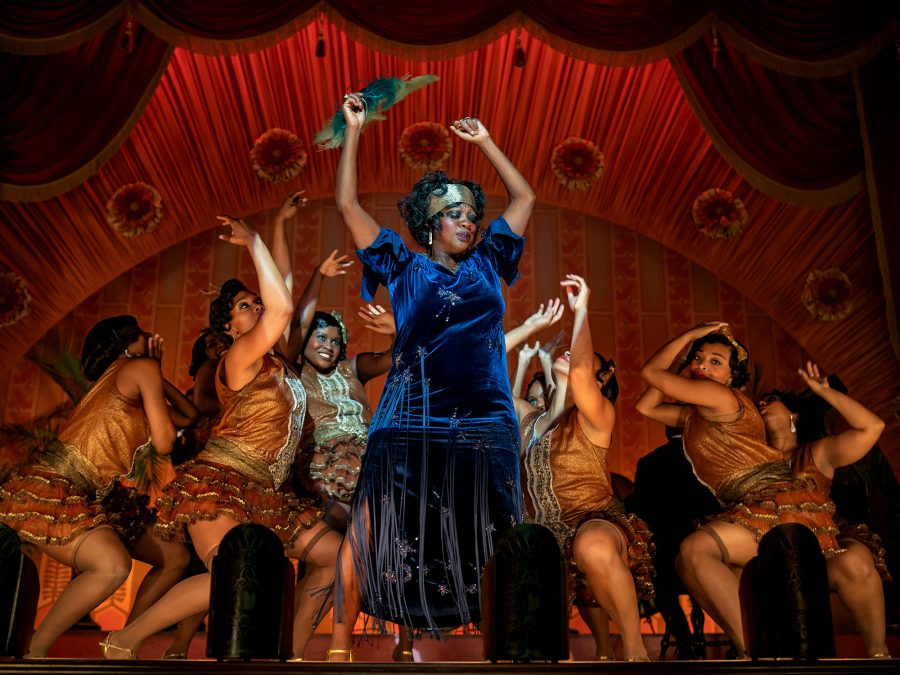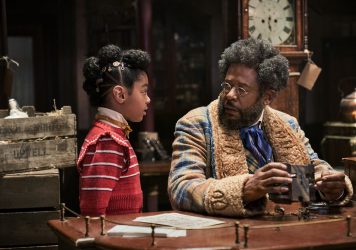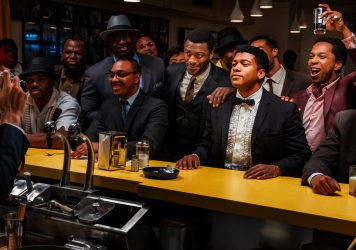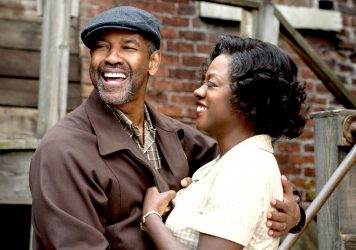The entertaining story of the titular “Mother of the Blues” sees Chadwick Boseman shine in his final performance.
In the opening scene of Ma Rainey’s Black Bottom, two Black men run through the woods in what feels like a familiarly chilling incident given the historical context. The men frantically scramble their way through the forest, breathing heavily, with fog rolling through the trees and dogs barking in the distance. They quickly reach a clearing lit up by burning torches, evoking images of white hoods and fiery crosses.
But as they approach, it becomes clear that they have not been running away from but rather towards something. They laugh, joining a crowd of people eagerly waiting to be let in to Ma Rainey’s show. This scene perfectly encapsulates the uneasy tone of the film, with building tensions it is never quite clear if or when they will bubble over and the mood will change unexpectedly.
Adapted from August Wilson’s award-winning play of the same name, George C Wolfe’s film is the fictionalised account of a recording session with the real-life “Mother of the Blues” and her band in Chicago. Largely taking place over the course of one oppressively hot day, it explores the complexities of race, religion, art and the impact of the Great Migration (the mass movement of Black Americans from the South to the North) in 1920s America.
Strained relationships, and the constant power struggles within them, are central to the film. Ma (Viola Davis) clashes with her white manager Irvin (Jeremy Shamos) and studio head Sturdyvant (Jonny Coyne), who takes every opportunity to undercut her. She uses her profitability as leverage to force them to treat her with the respect she deserves, aware that they have little regard for her beyond her money-making abilities.

She is also in conflict with her horn player Levee (Chadwick Boseman), who brazenly flirts with her girlfriend Dussie Mae (Taylour Paige) and remains unwilling to defer to Ma’s artistic judgement. He is determined to make his mark on the industry, with a distaste for traditional Blues music and his own ideas about how her songs should sound.
The film is not particularly heavy on plot, hinging instead on character and conversation, namely that between the four men in the band: Levee, Cutler (Colman Domingo), Toledo (Glynn Turman) and Slow Drag (Michael Potts). Though their discussions are often seemingly trivial (with topics including what makes a fool and the beauty of Levee’s new brogues), they reveal much about the state of America at the time.
Toledo delivers an earnest philosophical sermon on the advancement of Black people worldwide. Levee recounts a harrowing tale of racial trauma and presents impassioned arguments against Christianity – an excellent final performance from Boseman who imbues every word with a sizzling intensity.
Despite being the titular character, Ma Rainey doesn’t feel like the protagonist, which is disappointing given that this film provides a rare look into Black American queer history. As expected, Davis gives an impressive performance, but criticism of her wearing a fat suit to play the role is justified; the choice not to give the part to somebody with a more similar physique feels like a missed opportunity.
Even though Ma Rainey’s Black Bottom is set over 90 years ago, it feels unsettlingly timely in the way that all historical films which deal with racism will until these issues are meaningfully addressed. Discussions around the white-washing and appropriation of Black art, racialised violence, and efforts towards equality, are being had in 2020 as they were in 1920; as much as we can now see how far we have come, it is also important to acknowledge how much further we have left to go.
Published 20 Nov 2020
Viola Davis, Chadwick Boseman and Colman Domingo are consistently excellent.
Boseman’s final performance is exceptional – Oscar buzz is well-deserved.
This could have been more Ma Rainey’s show.

Forest Whitaker stars as a down-on-his-luck toymaker in David E Talbert’s festive family frolic.

Four icons of African American history meet in a Miami hotel in Regina King’s promising directorial debut.

Viola Davis steals the show in this faithful stage adaptation from director Denzel Washington.